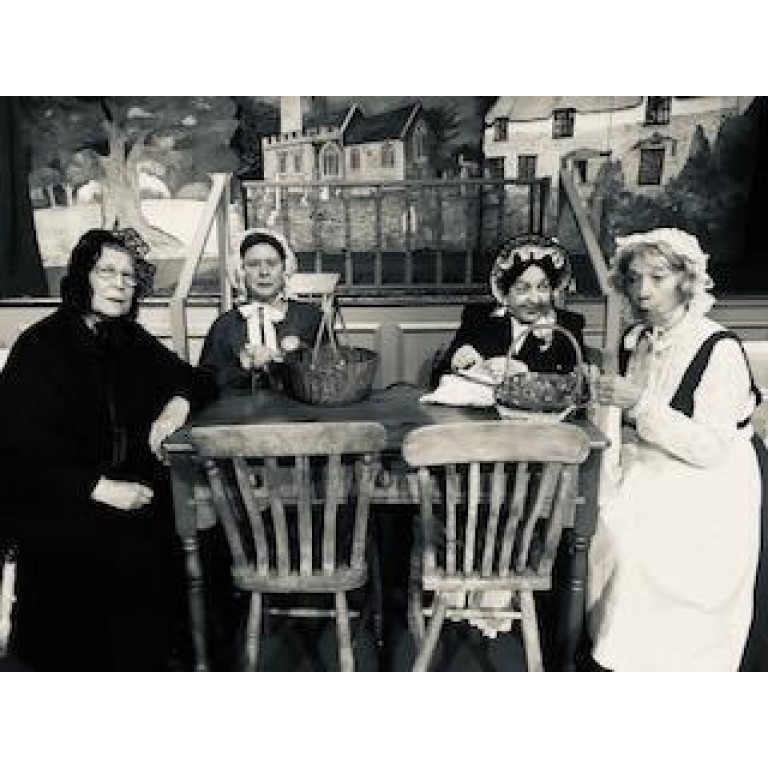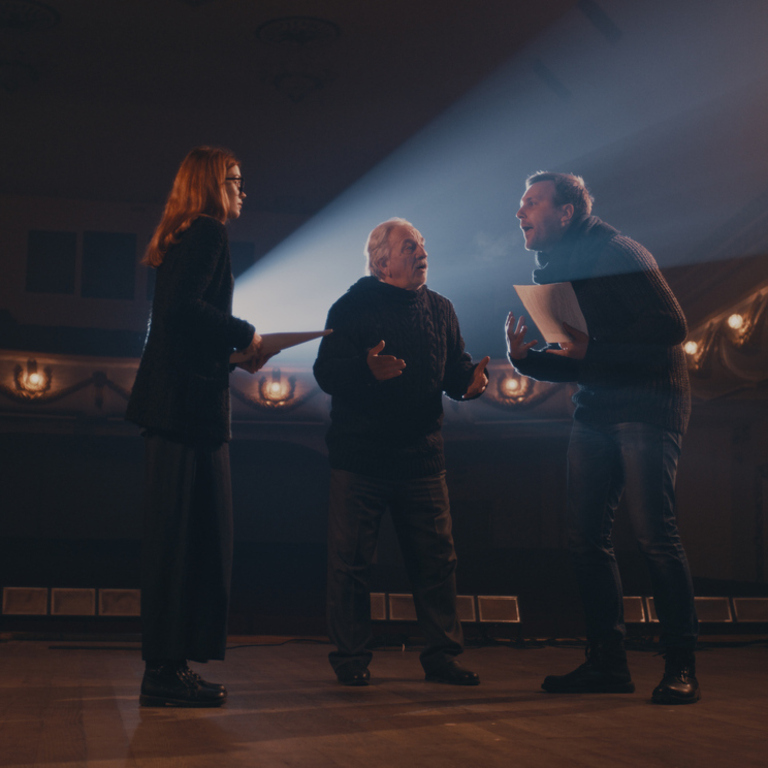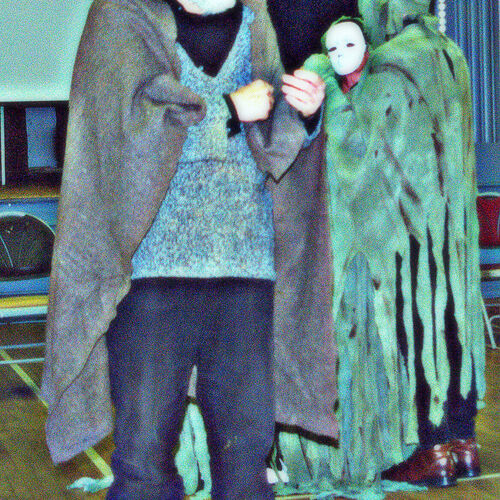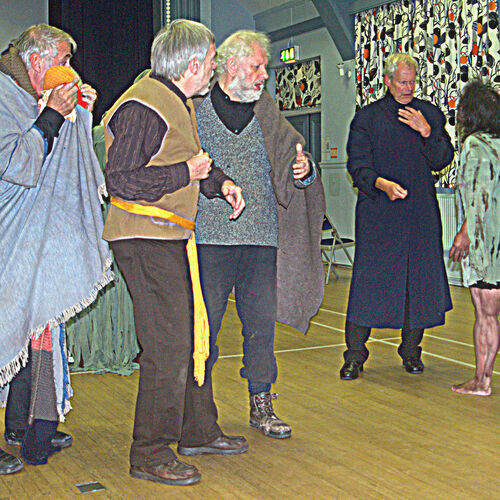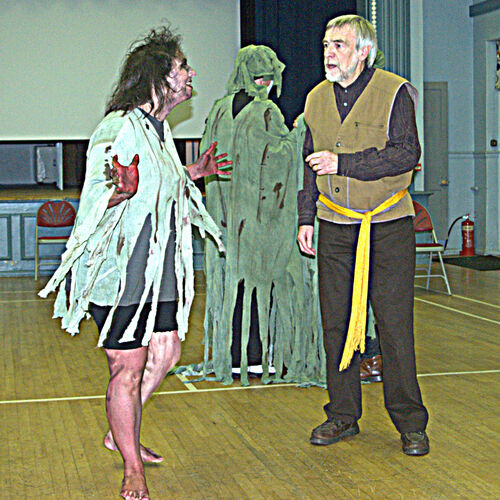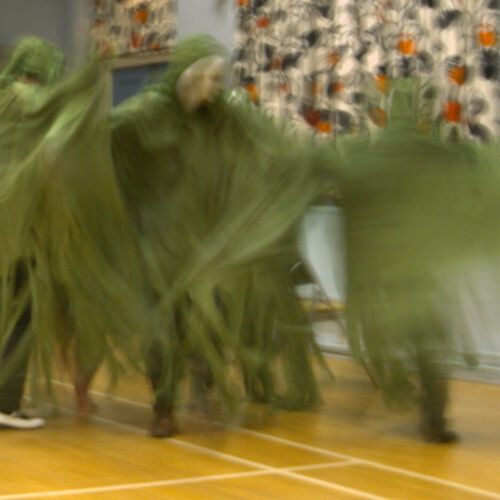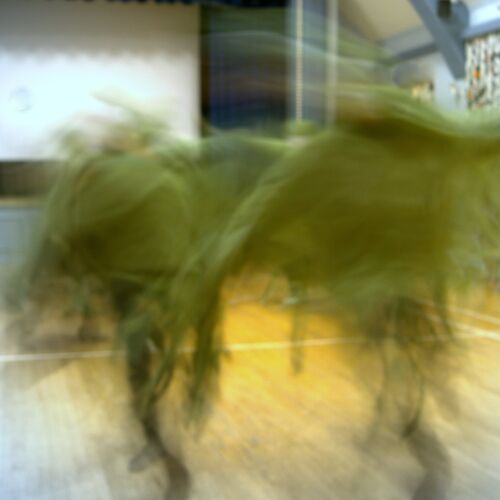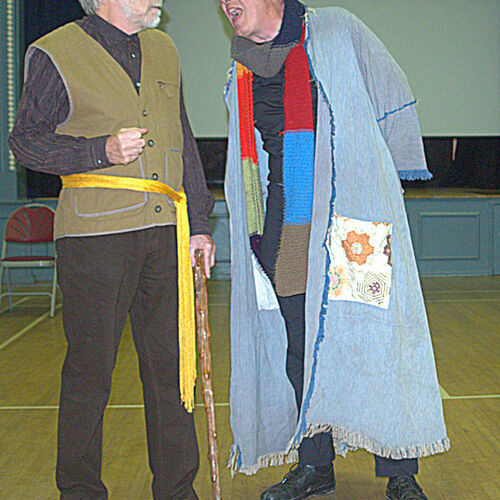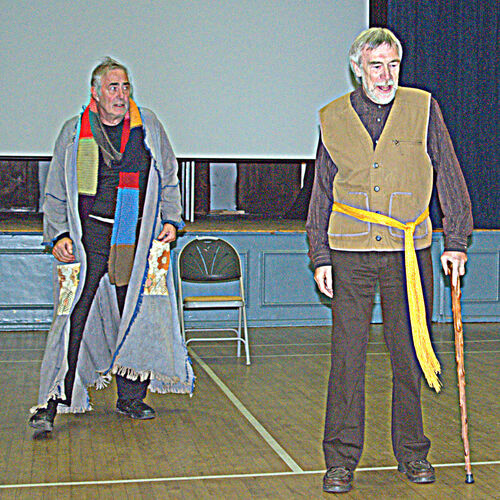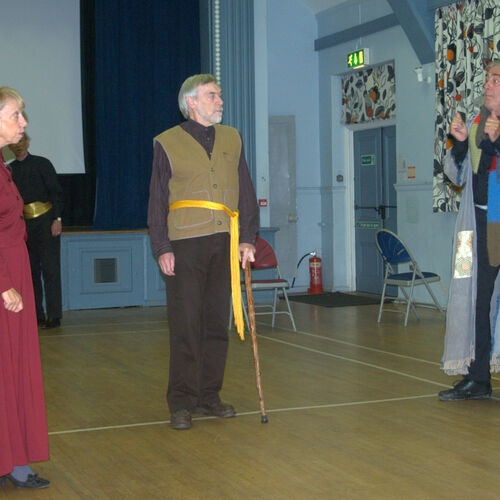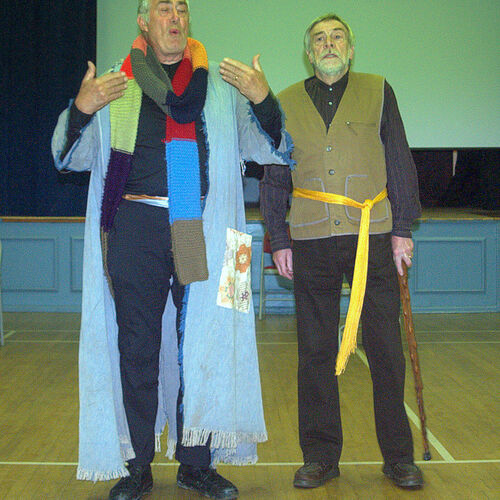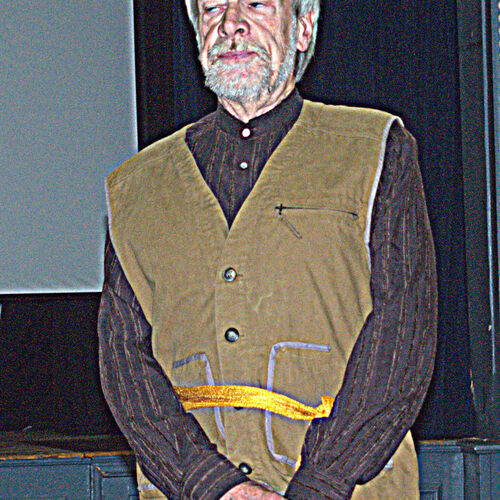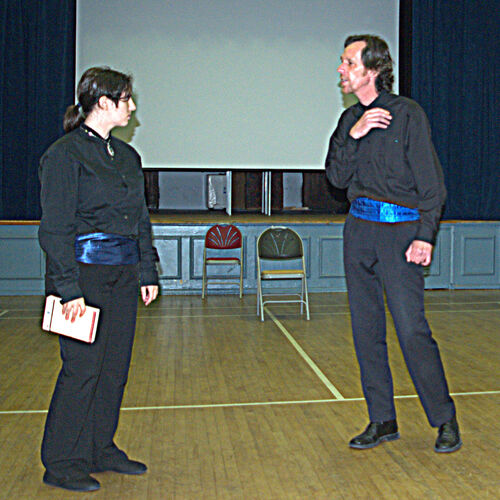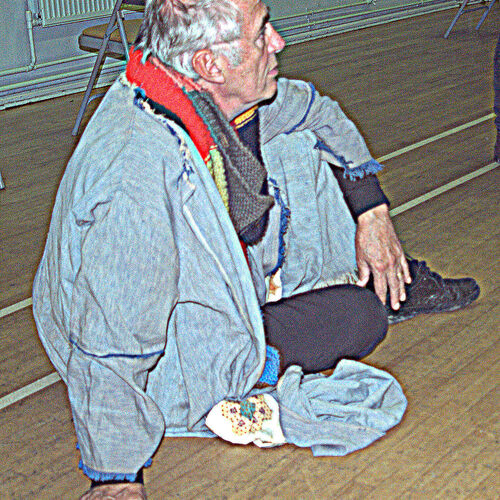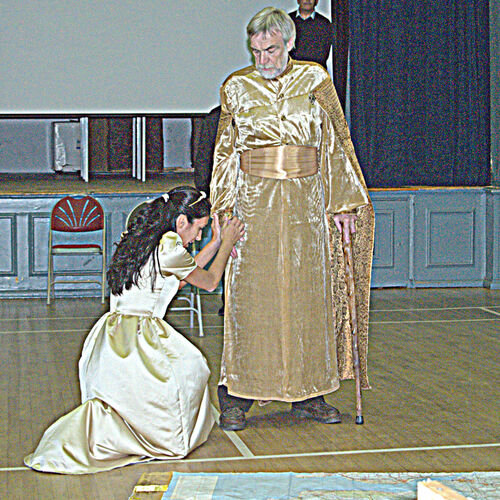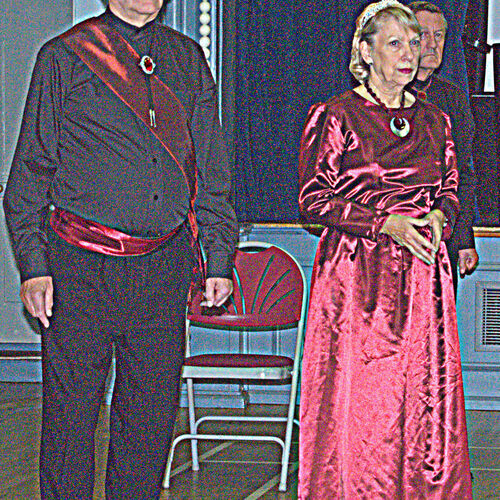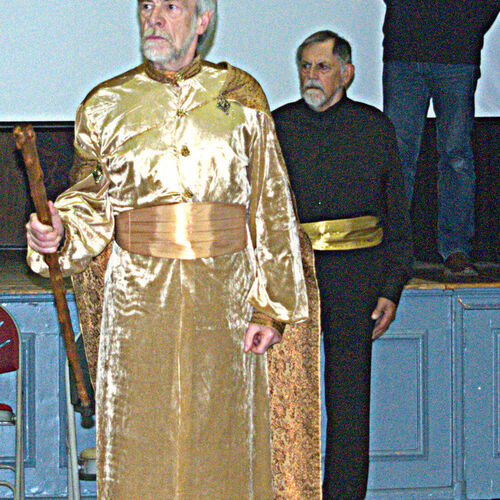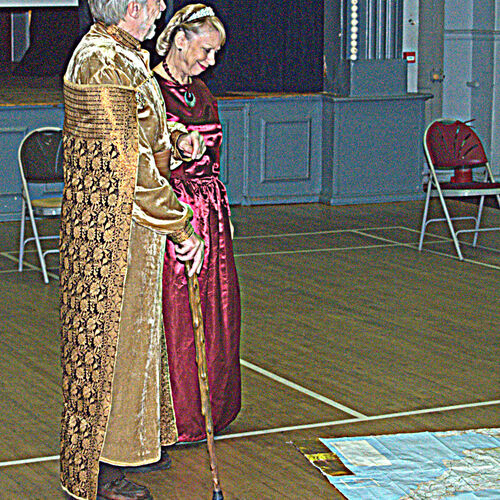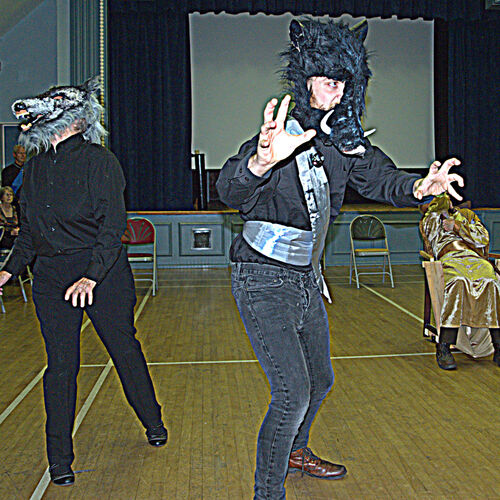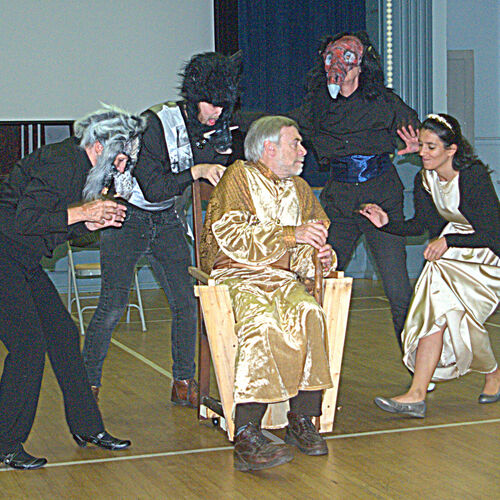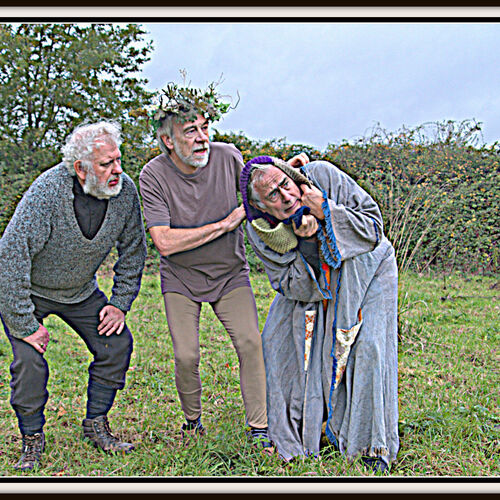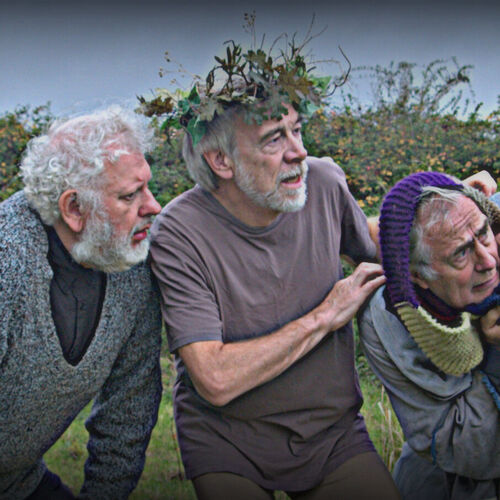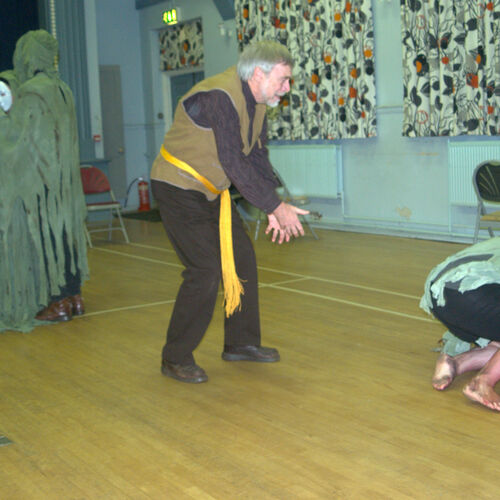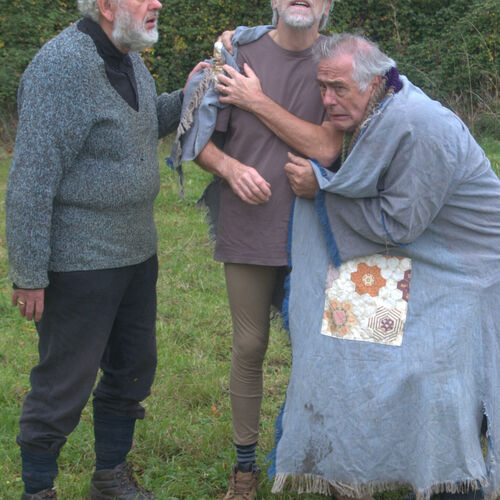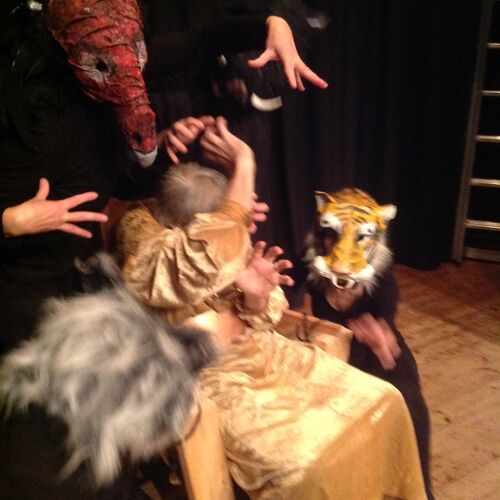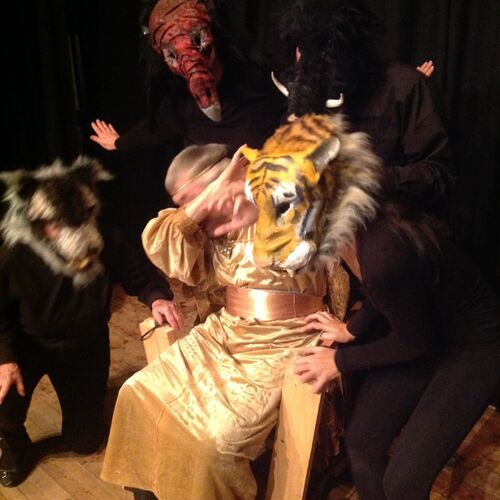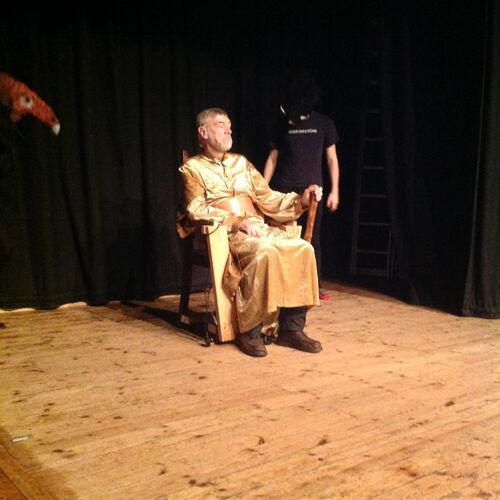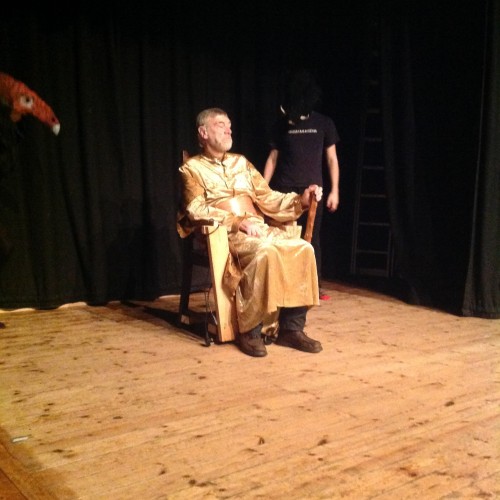
posted 17th July 2025
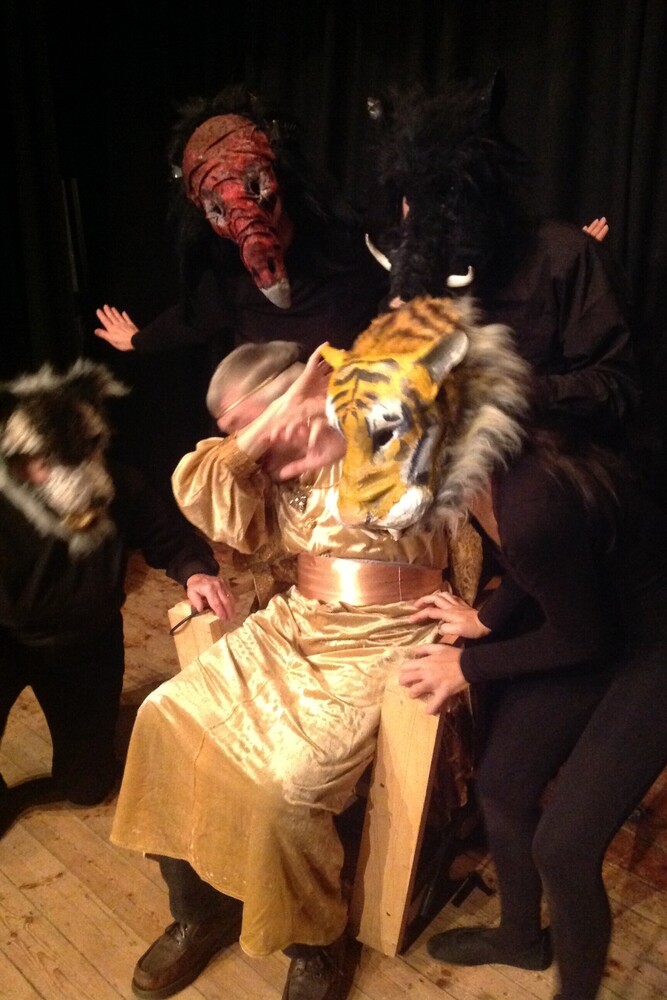
The Tragedy of King Lear
Set in a dystopic near future, this interpretation of ‘King Lear’ by The Estuary Players emphasizes its critique of power and social injustice in an authoritarian society, but also how ‘civilisation’ is fragile and constantly under threat from the forces of darkness. The social disintegration that results from Lear’s division of his kingdom feels almost apocalyptic in its far reaching consequences, as Gloucester informs Edmund,
‘….Love cools, friendship falls off, brothers divide: in cities, mutinies; in countries, discord; in
palaces, treason; and the bond cracked ‘twixt son and father….We have seen the best of our time.’
Nothing will be the same again for this society. ‘Lear’ exhibits a world of moral extremes where we witness
‘Humanity’s long, agonized and continuing struggle to be human.’ When Albany issues his devastating
critique of Goneril’s moral annihilation he takes us to the heart of this struggle,
‘Wisdom and goodness to the vile seem vile; filths savour but themselves. What have you done?
Tigers, not daughters, what have you performed?
A father and a gracious aged man
Whose reverence even the head lugged bear would lick,
Most barbarous most degenerate, have you madded.’
His critique ends with a horrifying vision of cannibalism,
‘Humanity must perforce prey on itself,
Like monsters of the deep.’
Indeed, some of the central images of the play relate to predatory creatures, the tiger, vulture, bear, boar,
wolf – representatives of the worst features of mankind. The play is ‘unsparing in its depiction of human
cruelty’ and is almost unbearable to watch at times. It exposes human folly, greed and political corruption
and would seem, as some critics have maintained, to feel the most modern of Shakespeare’s plays. In Jan
Kott’s ‘Shakespeare Our Contemporary’ ‘King Lear’ is viewed through the prism of the Theatre of Cruelty
and specifically Becket’s ‘Endgame’. We live in a hostile, incomprehensible, godless and nihilistic universe.
The landscape of King Lear, like ‘Waiting for Godot’ is bleak and while it is true that the merciless
characters, Goneril, Regan, Cornwall and Edmund all die at the end of the play, so too do Lear, Gloucester
and Cordelia. Kent, one could argue, also hints at taking his own life after the death of his master. Yes we
do have great examples of goodness, kindness, unselfish loyalty and self-sacrifice, to counter the savagery and malevolence of Goneril and Regan. Yes, we do see Lear grow, through terrible suffering, to understand what it means to be a ‘poor naked wretch’ and to expose the corruption of the powerful:
‘Take Physic Pomp!
Expose thyself to feel what wretches feel.’
…but it is hard to accept any redemptionist interpretation of ‘King Lear’. The ending of the play does not fill us with any great hope that society or human beings will change for the better
Review
King Lear is widely regarded as the most intensely serious and profoundly moving of all Shakespeare’s plays. The one which is deeply concerned with matters that get to the very core of what it is to be human
So to stage a performance is the equivalent of running a marathon. You need to prepare with a period of intensive training, be totally focussed, and that applies to all members of the production, on stage and back stage, and then give it your all on performance nights. No half measures!
The opening scene, with the ceremony of Lear dividing up his kingdom between his three daughters is key, and drives the rest of the play. Does everyone at court know in advance? What might his motives be? What will be the consequences? How surprised are his daughters and their followers? Politics and machinations loom large. The surface covers enervated and shifty moral standards. Soon all hell will break loose.
For me the opening lacked the under surface warnings. It was difficult to catch an indication, a suggestion, of why this energetic, very confident and able Lear would want to down size. What I didn’t have any doubt about was that Alan Caig, as King Lear, could clearly give voice to the lyrical words and rich imagery of the text. The delivery of the language and the clarity of meaning, which is a huge responsibility, and no mean feat, were extremely well done. We were engaged from his entrance and were prepared to join him on his physical and emotional journey. The physical was well caught, but the emotional descent in to despair and madness was somewhat less convincing
Goneril ( Chris Eilbeck) and Regan ( Clare Philbrock) from the very beginning set out their stall. Used to getting their own way, with the extra land and power there would now be no holding them. Their stance and expression became more pronounced as they both became released in to a fatal, self- centred destructive spiral. Regan’s depth of sadistic bullying in the blinding of Gloucester was a very convincing, look away, moment. Both husbands ( Dave Hill and Bill Pattinson) provided strong, contrasting, but well defined support
Thoughtful, amenable Kent ( Rob Hole) and slightly craggy Gloucester ( David Batty) in many ways help hold the play together. They are part of the glue of sense and goodness. Both actors grew in to their parts and gained greater conviction as they got caught up in the violent and turbulent happenings. They were a pleasure to watch
The Fool (Keith Palmer) was all you could expect him to be. He provided a touching, but unsentimental performance as Lear’s conscience. A tense, wary individual, but wise to what is happening, who understands all. Lear’s needs and errors are shown in his face. His expression carried the burden of pain that echoed through his zany musings. The energy and concentration of this actor was an example for others to follow.
In a non-scenery production it is important that all entrances give a sense of place and time. Where are the characters coming from? Why are they there? On occasions this was not always made very clear. In my view it would have helped with more atmospheric lighting, a cover for the badminton court floor and with costumes, especially Lear’s, that belonged to the character rather than to the actor
However, to offer this majestic Shakespeare production in a local community setting, with a large team directed by Ian Potts, and to engage and hold the attention of an audience with sound story telling is a considerable achievement. A marathon was accomplished.
Leon Winston










